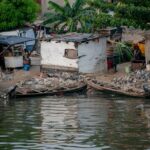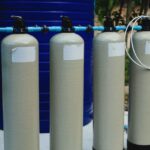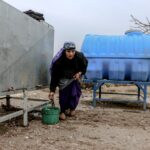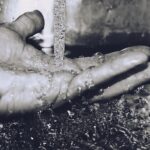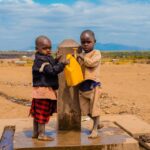Is It Safe to Drink Tap Water in Togo? A City-by-City Guide
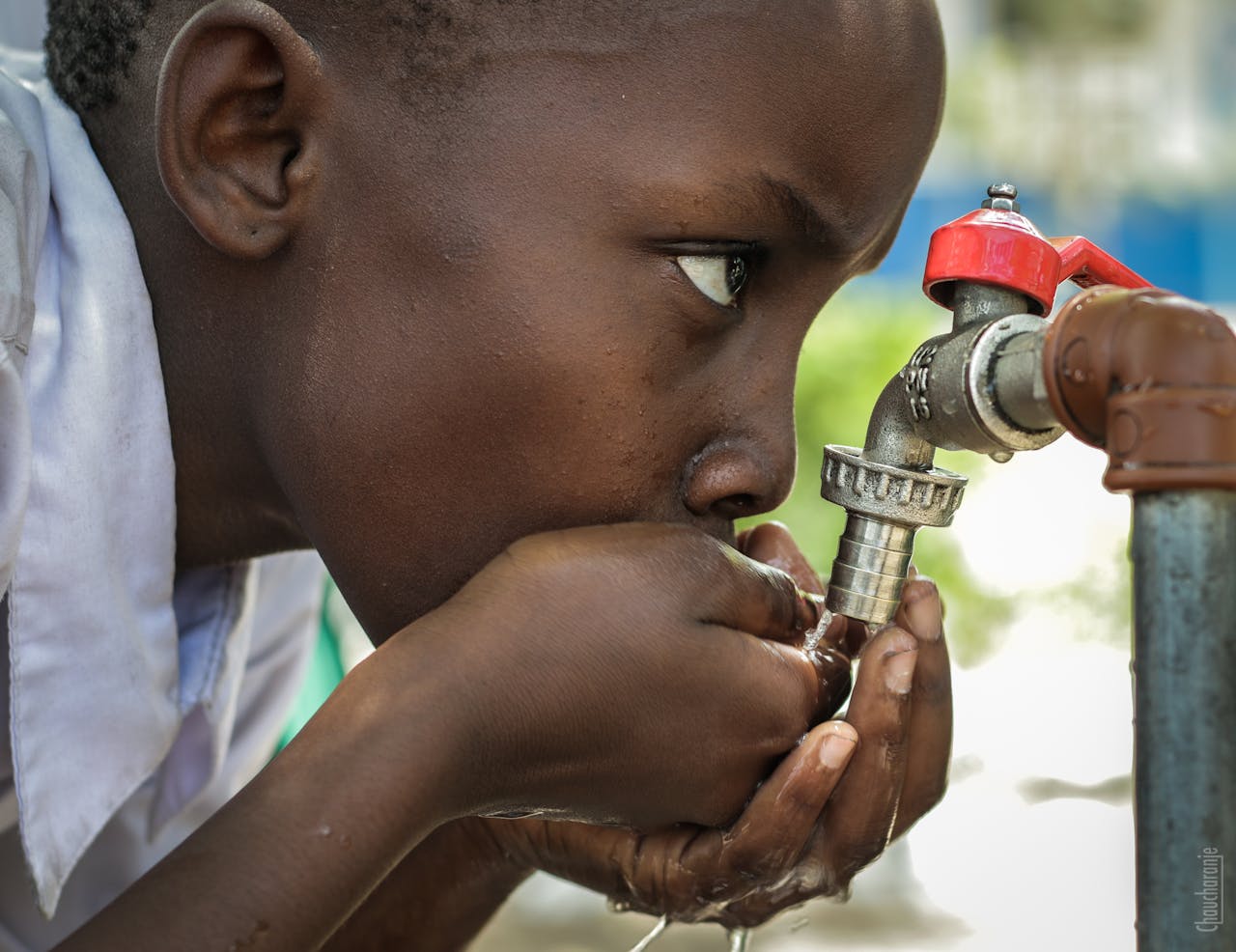
Water is very important for life, but not all water is safe to drink. In Togo, some people can drink tap water safely, while others must be careful. The safety of tap water depends on where you live because water in certain cities is cleaner than in others.
This guide will help you understand which cities have safe tap water and where you need to be more careful. It is important to know so you don’t get sick from drinking dirty water.
General Water Quality in Togo
Togo gets its tap water from different places, like rivers, wells, and underground water sources. Around 85% of the total public national water supply in Togo comes from groundwater. The government cleans the water before sending it to people’s homes, but sometimes, the water still has dirt or germs in it.
Some areas have strong water pipes, but in other places, the pipes are old or broken, which lets dirty water mix with clean water. Also, when it rains a lot, water sources can get polluted, making tap water unsafe to drink.
Tap Water Safety in Lomé (Capital City)
Lomé, the capital of Togo, has the best water system in the country. Most people in the city get water from pipes that connect to their homes. The government treats the water before sending it, but sometimes, the pipes get dirty and germs can enter.
Many people in Lomé still choose to boil their tap water or use filters before drinking it. Tourists and visitors are usually advised to drink bottled water instead of tap water to avoid getting sick.
Tap Water Safety in Sokodé
Sokodé is the second-largest city in Togo and many people get their tap water from a public water system. While the water is treated before reaching homes, it sometimes gets contaminated along the way due to old pipes or leaks.
Locals who have lived in Sokodé for a long time may drink tap water without issues, but visitors are advised to be cautious. Boiling the water or using a filter is a safer choice. Many people also buy bottled water, especially during the dry season when water supply can be inconsistent.
Tap Water Safety in Kara
Kara is an important city in northern Togo. Many people here get their tap water from a treated water system, but it is not always reliable. Sometimes, the water supply stops, and people have to find other sources, like wells and rivers.
Because of this, the water in Kara can sometimes have dirt or bacteria. Most families boil their tap water or use water filters before drinking. Visitors are also advised to drink bottled or filtered water to stay safe.
Tap Water Safety in Kpalimé
Kpalimé is a popular tourist town because of its beautiful nature. The city gets its tap water from rivers and underground sources, which are treated before reaching homes. However, the water pipes in some parts of the city are old and can let in dirt.
Locals often drink tap water, but visitors are usually told to be careful. It is best to boil the water or use a water filter to make sure it is safe. Many people also prefer bottled water, especially when traveling.
Tap Water Safety in Atakpamé
Atakpamé, a city in central Togo, has mixed water safety levels. Some areas get clean tap water, while others face problems with water pollution. Heavy rains can make the water muddy and unsafe to drink.
People who live in Atakpamé often store water for later use, but if it is not stored properly, it can get contaminated. It is always safer to boil or filter tap water before drinking it, especially for visitors who are not used to the local water.
Tap Water Safety in Dapaong
Dapaong is in the northernmost part of Togo, where the climate is hot and dry. The city has limited water supply, and many people rely on wells and boreholes instead of tap water. Because these water sources are not always treated, they can carry bacteria or dirt.
Since tap water is not always available, people in Dapaong often buy bottled water or treat their own water at home. Boiling water or using a water filter is the best way to avoid getting sick.
Tap Water Safety in Tsévié
Tsévié is close to Lomé, and its water system is similar to that of the capital. The tap water is treated, but not everyone fully trusts it. In some areas, the pipes are old, and water can pick up dirt before it reaches homes.
Because of this, most people in Tsévié prefer to boil their water before drinking it. Some families also use filters to remove any impurities. For visitors, bottled water is the safest option.
Tap Water Safety in Aného
Aného is a coastal city and some of its water comes from underground sources. However, because it is close to the sea, there is a risk of saltwater mixing with tap water. This makes the water taste different and may not be good for drinking without treatment.
People in Aného often use wells or buy bottled water. Boiling or filtering tap water is also a common practice. Visitors should stick to bottled or properly treated water to stay safe.
Health Risks of Drinking Unsafe Tap Water in Togo
Drinking dirty water can make people very sick. In Togo, many water sources have germs and chemicals that can cause diseases. Some of the common sicknesses from unsafe water include:
- Cholera – This disease causes severe diarrhea, which can make people weak and dehydrated.
- Typhoid – A bacterial infection that leads to fever, stomach pain, and serious illness.
- Diarrhea – Drinking unclean water can upset the stomach and cause frequent trips to the toilet.
Children, older adults, and people with weak immune systems are at higher risk of getting sick from unsafe water. If they don’t get treatment quickly, these diseases can become life-threatening. That’s why it’s very important to drink clean and safe water.
Alternative Safe Drinking Water Options
Since tap water is not always safe, people in Togo use other ways to get clean drinking water. Some options include:
- Boiling water – Heating water until it bubbles kills germs and makes it safer to drink.
- Water filters – Some families use filters to remove dirt and bacteria from their tap water.
- Bottled water – Many people prefer bottled water because it is sealed and treated properly.
- Sachet water (pure water) – Small plastic bags of treated water are sold everywhere, but some may still be unsafe if not properly made.
- Chlorine tablets – These are small tablets added to water to kill harmful germs.
Using these options can help prevent sickness and make sure families have safe water to drink.
What the Government and NGOs Are Doing to Improve Water Safety
The government and different organizations are working to make water safer in Togo. Some of their efforts include:
- Building better water systems – They are fixing old water pipes and improving treatment plants to make sure tap water is cleaner.
- Providing water filters and treatment solutions – Some NGOs (non-governmental organizations) are giving free water filters to communities that don’t have clean water.
- Educating people – Health workers and volunteers teach people how to store and treat their water properly at home.
- Bringing clean water to villages – Many rural areas don’t have taps, so organizations are digging wells and boreholes to give people access to safe drinking water.
Even though progress is being made, more work is needed to ensure every home in Togo has safe and clean drinking water.
Practical Tips for Staying Safe When Drinking Water in Togo
If you live in Togo or visit, here are simple ways to make sure your water is safe:
- Drink bottled water if unsure about tap water.
- Boil tap water before drinking it.
- Use a water filter at home.
- Avoid drinking water from rivers, streams, or open wells.
- Check for signs of dirty water, like strange color or smell.
- Store water in clean containers with covers to keep it safe.
By following these steps, people can reduce the risk of getting sick and enjoy safer drinking water.
Conclusion
Water safety in Togo varies from city to city. While Lomé has better water treatment facilities, other places like Sokodé, Kara, Kpalimé, and Atakpamé still face challenges with clean water access. Many people rely on tap water, but contamination risks remain, making extra precautions necessary.
Drinking unsafe water can lead to serious health problems, like cholera and typhoid, which is why it’s important to use filtration methods, boil water, or opt for bottled water when in doubt. The government and different organizations, including NGOs like Aqua Maya, are working to improve water quality, but progress takes time. Aqua Maya focuses on providing safe and clean water to communities in need, helping to reduce the risks of waterborne diseases.
To stay safe, residents and visitors should always check the water quality in their area, use proper purification methods, and report any water issues to local authorities. Clean drinking water is essential for health, and everyone has a role to play in ensuring safer water access across Togo.
Sources
2. https://www.africanwaterfacility.org/en/news/how-sokode-became-benchmark-city-sanitation-togo
3. https://earthwise.bgs.ac.uk/index.php/Hydrogeology_of_Togo
4. https://www.sciencepublishinggroup.com/article/10.11648/j.ajep.20241305.15

